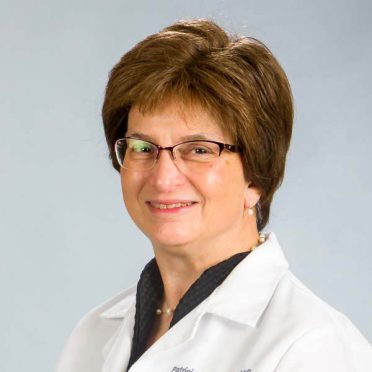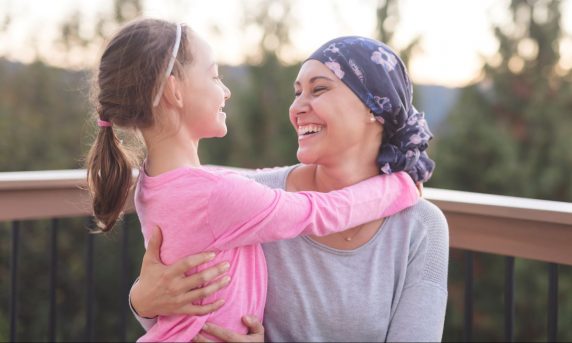There are a plethora of tests out there that you don’t have to study for, but that could very well save your life. Cancer screening tests.
Patricia DeFusco, MD, a medical oncologist and medical director of the Breast Program for the Hartford HealthCare Cancer Institute, says these tests “increase the chances of early detection of certain cancers, often before you even have symptoms. This gives you the best chance of treating the disease before it spreads.”
Breast Cancer
Who should get screened:
“Mammograms are the single best tool in the fight against breast cancer and can detect it at the earliest and most treatable stages,” Dr. DeFusco says. “The American Cancer Society estimates that there will be 297,790 new cases of breast cancer in the United States in women and about 2,800 cases in men. In Connecticut, the estimates are for 3,620 new cases in women. Connecticut has one of the higher incidence rates in the country and this may be due to higher socioeconomic status and increased use of screening mammography among other reasons. Breast cancer in men represents less than 1% of all breast cancers.”
While there are many guidelines regarding when to begin screening, most suggest screening women over the age of 40 with average risk.
If you are at average risk for breast cancer based on your symptoms and family history:
- Have an awareness of any changes in your breast/chest, such as nipple discharge or changes in the nipple, breast lumps, changes in size or shape of the breast/chest or thickening of the breast tissue or any dimpling or retraction of breast tissue.
- Have annual clinical breast/chest exams done by a trained provider to examine your breast, underarms and collar bone region
- Based on your mammogram, ask your provider if additional imaging such as dense breast ultrasound or MRI is indicated
- Women and men with a genetic predisposition for breast cancer should be seen by a specialist who can discuss optimal screening strategies.
Skin Cancer
Each year in the United States, new cases of skin cancer outnumber the combined new cases of breast, prostate, lung and colon cancers. You’re at risk for skin cancer if you have:
- Pale skin
- Experience excessive or unprotected exposure to the sun’s ultraviolet rays
- Have a family history of skin cancer
- Experienced severe sunburn
- Have numerous or unusual moles
You can conduct regular self-exams. You should look for:
- Any change, particularly the size or color of a spot, mole or growth
- Sores that do not heal
- Oozing, bleeding or scaliness
- Color that spreads beyond the border of a growth
- Tenderness, itching, pain or other new sensations
> Want more health news? Text StartHere to 85209 to sign up for text alerts
Prostate Cancer
The American Cancer Society estimates that in 2023, there will be 288,300 new cases of prostate cancer, expected to kill approximately 34,700 Americans. Risk factors include:
- Age
- African ancestry
- Family history of prostate cancer
- Certain inherited conditions
The prostate cancer death rate declined by about half from 1993 to 2013, most likely due to earlier detection and advances in treatment. “The specialists at the Hartford HealthCare Cancer Institute’s Tallwood Men’s Health Center are nationally recognized experts in the screening, diagnosis and treatment of prostate cancer,” Dr. DeFusco says.
Cervical Cancer
When detected at its earliest stages, the five-year survival rate for women with invasive cervical cancer is 92%.
Women aged 21 to 29 should have a screening Pap test every three years. From ages 30-65, women should receive a combined Pap/HPV test every five years or Pap every three years. If a cervical cancer is detected, our team of expert gynecologic oncologists lends its expertise with diagnostic tools and treatments from surgery to chemotherapy, radiation, and immunotherapy, Dr. DeFusco says.
> Related: 3 Things You Should Know About Pap Smears and Cervical Cancer
Lung Cancer
“Lung cancer is the leading cause of cancer-related death in America, but now there’s more hope,” Dr. DeFusco says. “We use a low-dose CT scan to create detailed pictures of your body. Screening won’t prevent cancer and it may not find all lung cancers, but research shows that if people at higher risk are screened every year, they’re less likely to die from lung cancer.”
Most insurance companies will cover the cost of lung cancer screening. You should get an annual lung cancer screening if you are 50 to 80 years old and you:
- Have a smoking history of at least 20 pack years ( defined as 1 pack/day x 20 years or 2 packs/day x 10 years).
- Still smoke, or you quit within the last 15 years.
- Are in good health overall.
> Related: 6 Myths About Lung Cancer, Debunked by an Expert
Colorectal Cancer
Start colonoscopy screenings at age 45 in the absence of risk factors or lack of symptoms. High risk individuals, i.e, those with a family history of colorectal cancer or colon polyps and those with certain high risk genetic syndromes may need testing before age 45.
“We offer screening colonoscopies across the state for qualified patients,” Dr. DeFusco says. “A colonoscopy can detect and remove a polyp or precancerous growth before it ever turns into cancer. Alternative screening methods are also available in the appropriate clinical setting and these can be discussed with your primary care provider. Colon cancer is one of the most preventable types of cancer.”



